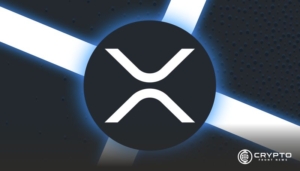- Ripple and Fenasbac launched a blockchain accelerator in Brazil to support fintech startups using XRP Ledger and blockchain tech.
- Ripple’s CEO criticizes the SEC’s inconsistent crypto regulations, citing discrepancies between Binance and Coinbase cases.
- Ripple views Brazil’s crypto policies as ideal for fintech growth while advocating for clearer regulatory frameworks.
Ripple and Fenasbac have partnered to promote fintech companies in Brazil and launched a new blockchain accelerator program. This project will support two financial businesses centered on the XRP Ledger and blockchain technology.
These businesses will focus on cash management, asset tokenization, lending and borrowing, and creative payment solutions. After working with Polkadot and the Federal University of Rio de Janeiro (UFRJ) in the past, Ripple is now partnering with Fenasbac to support Brazilian entrepreneurs.
Innovation and Strategic Goals
The LATAM region director of Ripple, Silvio Pegado, highlighted the partnership’s objective of promoting innovation. He mentioned that the program uses blockchain technology to address financial issues that arise in the real world.
Furthermore, Ripple sees Brazil’s forward-thinking approach to blockchain technology and cryptocurrencies as essential to revolutionizing global financial services. The nation’s innovative blockchain laws and friendly ecology make it the perfect place for Ripple’s projects.
Ripple Criticizes SEC’s Regulatory Actions
The CEO of Ripple, Brad Garlinghouse, has expressed disapproval of the SEC’s latest modifications to its case against Binance. Ten cryptocurrencies, including Solana (SOL), Cardano (ADA), Polygon (MATIC), and Cosmos (ATOM), had their classifications altered by the SEC. Reclassifying these tokens, which were previously categorized as “securities,” is necessary.
Garlinghouse criticized the SEC’s regulatory clarity and called the agency’s actions “hypocritical.” He hypothesized that political goals or legal tactics could be the cause of the SEC’s uneven enforcement of the law.
He said, “Definitely not faithful allegiance to the law.” Stuart Alderoty, CLO of Ripple, underlined these worries and drew attention to differences between the Coinbase and Binance situations. Alderoty also found that Coinbase’s case had comparable problems, with twelve tokens classed as securities, whereas Binance faced unique token classifications.
Furthermore, Ripple’s criticism encompasses the SEC’s general approach to cryptocurrency legislation. The need for more consistency in the agency’s approach has come under fire, particularly when contrasting its activities with those of other exchanges. As a result, Ripple keeps pushing for more lucid and uniform legal frameworks to facilitate the expansion of the cryptocurrency market.





